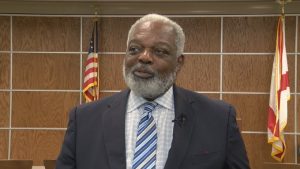A peace officer is a position handed to civil officers who help ensure their communities are safe and secure places where people can live, work and raise families. They are entitled to a number of duties from enforcing various laws to providing security in public facilities.
However, not every public safety officer is a peace officer. A peace officer has the sworn authority to make arrests. Peace officers undergo additional extensive training—at least 600 hours of classroom and field training—in topics including NYS laws, diversity and disability awareness, de-escalation techniques, and dealing with emotionally distraught persons.
Also Read | North Kansas City shooting: What we know so far
The role of a peace officer may vary from state to state. A peace officer is in a position to carry a badge, has the power to arrest and also carry a firearm.
A police officer, deputy sheriff, state trooper, and special agent all can be in a position of being peace officers, according to Go Law Enforcement. Many federal law enforcement positions are recognized as peace officers under state law which gives the authority to enforce state and local laws.
The main distinction between a peace officer and a police officer is that the powers of arrest for the former are limited to the scope of their geographic boundaries and the property that is immediately adjacent to where they are assigned.
The daily duties of peace officers vary with specific positions. For example, a correction officer is in charge of inmate security. Outside of the workplace they have no grounds to enforce the law.
Also Read | What is a Blue Alert? Missouri alert systems explained
Police officers, on the other hand, respond to service calls and their specific duties may include investigating crimes, directing traffic during an accident or responding to accident victims. Peace officers are often in charge of record keeping and report tracking as well. The work location of a peace officer varies from work at a desk, in a patrol car, at the scene of a crime or investigation or in various institutional locations.






